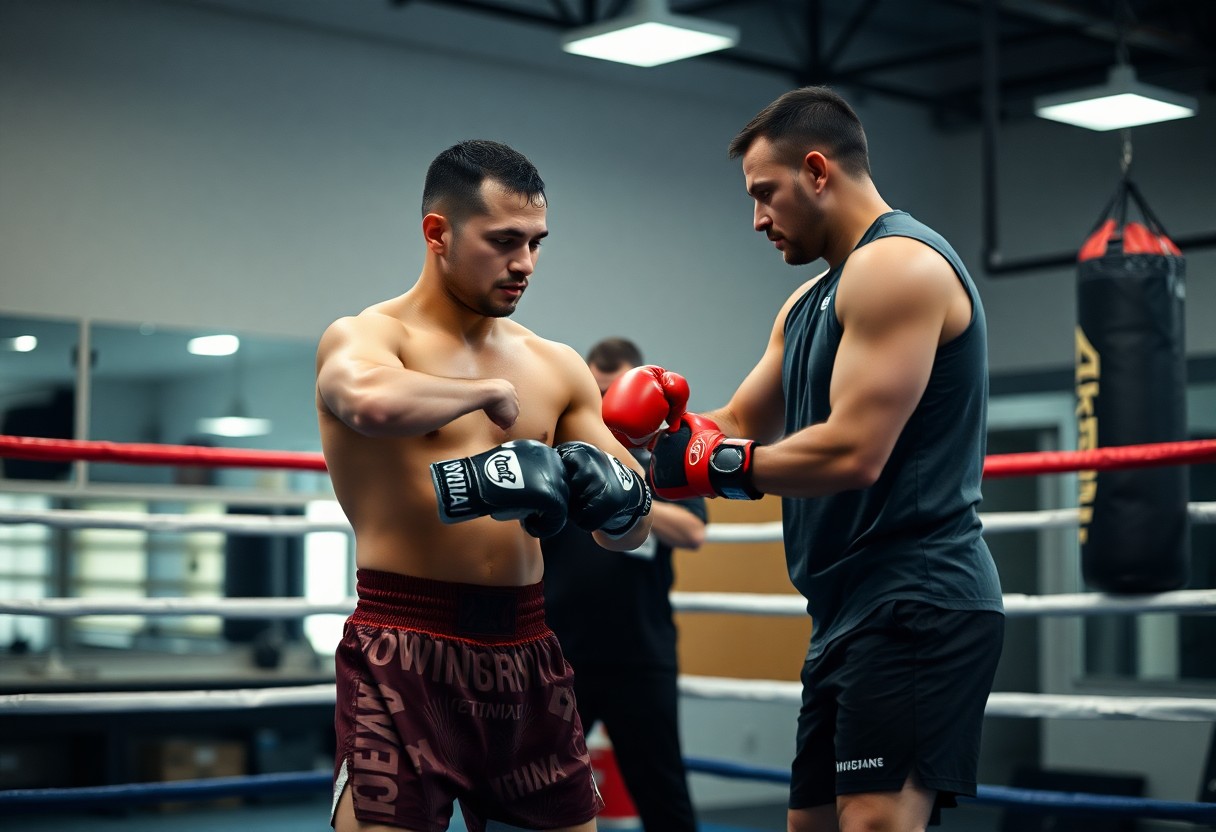
It’s important to understand that your nutrition and recovery strategies play a significant role in achieving peak performance in Muay Thai. Proper fueling of your body with the right nutrients can enhance your training, fight endurance, and overall athletic prowess. Alongside nutrition, integrating effective recovery techniques will help you minimize injuries and facilitate progress. This blog post will explore into important dietary guidelines and recovery methods to optimize your training and ensure you perform at your best every time you step into the ring.
The Role of Nutrition in Muay Thai
For Muay Thai athletes, proper nutrition serves as the foundation for performance, endurance, and recovery. Fueling your body effectively not only enhances training but also positively impacts your fight-day results. By understanding the importance of your dietary choices, you can optimize your energy levels and overall physical condition, ensuring you can train harder and perform at your best in the ring. Nutrition isn’t just about what you eat; it’s about strategic planning to meet the demands of your sport.
Macronutrients for Optimal Performance
Before stepping into your training routine, it’s imperative to balance macronutrients—proteins, carbohydrates, and fats—correctly. Proteins are vital for muscle repair, carbs provide energy, and healthy fats support hormonal functions. By prioritizing these macronutrients in your meals, you can sustain energy levels throughout your training and minimize muscle fatigue. Tailoring your diet to include the right quantities of these macronutrients can significantly impact your performance and recovery in the ring.
Micronutrients and Their Impact on Recovery
Between training sessions, micronutrients play an important role in recovery, as they help support various physiological functions imperative for restoring your body’s balance. Vitamins and minerals are not only vital for immune function but also aid in muscle repair and reducing inflammation after intense workouts. Ensuring you have a diverse and nutrient-rich diet lays the foundation for optimal health, enabling you to bounce back quickly from demanding training sessions.
Hence, paying attention to micronutrients is important for your recovery strategy. Incorporating a variety of fruits, vegetables, nuts, and seeds into your diet will ensure you receive imperative vitamins and minerals like Vitamin C, Vitamin D, iron, and zinc. These nutrients aid in repairing tissues, combating oxidative stress, and enhancing your overall wellness, allowing you to train effectively and recover adequately between sessions, ultimately improving your performance in Muay Thai.
Timing of Nutritional Intake
One of the most effective ways to optimize your Muay Thai performance is through the strategic timing of your nutritional intake. Eating the right foods at the right times can enhance your energy levels, improve your endurance, and facilitate faster recovery. Ensuring that you fuel your body adequately before and after training sessions will help maximize your physical capabilities and support your overall progress in the sport.
Pre-Training Fueling Strategies
Beside focusing on the type of food you consume, timing is also important for pre-training fueling strategies. Aim to ingest a balanced meal containing carbohydrates, protein, and some healthy fats about 2 to 3 hours before training. This timing allows your body to digest and convert the food into usable energy, ensuring you have the stamina needed for intense workouts.
Post-Training Recovery Nutrition
Nutrition after your training session is equally important as it helps replenish glycogen stores and repairs muscle damage. Consuming a meal rich in protein and carbohydrates within 30 to 60 minutes post-training is beneficial for recovery.
Hence, prioritizing recovery nutrition can greatly enhance your results. Focus on consuming a combination of protein and carbohydrates, such as a protein shake with a banana or a chicken sandwich, to kickstart muscle repair. This timely intake provides your body with necessary nutrients needed to recover and prepare for your next session, ultimately contributing to improved performance and longevity in the sport.
Hydration Strategies for Athletes
Some athletes underestimate the significance of hydration in their training regimes. Proper hydration supports optimal performance, enhances recovery, and helps maintain focus during intense Muay Thai sessions. As you sweat, your body loses not only water but imperative electrolytes, which can impact your energy levels and overall effectiveness. Making hydration a priority can lead to improved training outcomes, allowing you to perform at your best.
Importance of Fluid Balance
One imperative aspect of athletic performance is maintaining fluid balance. Dehydration can lead to fatigue, impaired coordination, and decreased strength, all of which hinder your training intensity and growth. Ensuring you consistently hydrate before, during, and after workouts helps sustain your body’s physiological functions, allowing you to recover better and compete effectively.
Electrolyte Replenishment
Above simply drinking water, replenishing electrolytes is vital for athletes engaged in rigorous training like Muay Thai. As you train, your body loses imperative minerals such as sodium, potassium, and magnesium through sweat, which can disrupt your electrolyte balance. Maintaining this balance is necessary to prevent cramping, reduce fatigue, and enhance muscle function.
Another effective strategy for ensuring adequate electrolyte replenishment involves incorporating sports drinks or electrolyte-rich foods into your diet. Options like coconut water, electrolyte-infused beverages, or natural sources like bananas and leafy greens can help restore lost minerals. It’s vital to customize your intake based on your training intensity, environment, and individual sweat rate, allowing you to fine-tune your hydration strategy for peak performance.
Supplements and Performance Enhancement
Despite the rigorous training regimen required for Muay Thai, many athletes seek supplements as a means to enhance their performance and recovery. While supplements can potentially offer benefits, it is vital to approach their use thoughtfully, ensuring that they complement a well-rounded nutrition plan rather than replace it. Knowing what works for your body and how to integrate these supplements into your routine can help maximize your potential in the ring.
Commonly Used Supplements
By understanding the most commonly used supplements among Muay Thai athletes, you can better navigate your options. Creatine, branched-chain amino acids (BCAAs), and protein powders are popular choices aimed at improving strength, endurance, and recovery. Additionally, electrolyte tablets and omega-3 fatty acids can aid in hydration and inflammation reduction, respectively, allowing you to train more effectively and recover faster after intense workouts.
Evidence-Based Benefits
After exploring the landscape of supplements, it’s important to focus on the evidence-based benefits that can support your training. When backed by scientific research, certain supplements can enhance performance, increase muscle recovery, and improve overall health, which can be particularly advantageous for demanding sports like Muay Thai.
At the core of your supplement strategy should be those with proven efficacy. For instance, creatine has been shown to increase muscle mass and strength, while BCAAs can reduce muscle soreness and stimulate protein synthesis. Omega-3 fatty acids are often praised for their anti-inflammatory properties, supporting quicker recovery. As you consider incorporating supplements, ensure they align with your individual goals and complement your training for the best overall experience.
Recovery Techniques Beyond Nutrition
To optimize your Muay Thai performance, it’s vital to incorporate recovery techniques beyond just nutrition. Focus on methods such as stretching, foam rolling, and massage therapy to relieve muscle tension and enhance circulation. By implementing these strategies into your routine, you can support your body’s natural healing processes and reduce the risk of injury, ultimately allowing you to train harder and recover faster.
Active Recovery Strategies
Recovery strategies should include active recovery methods that keep your body engaged without straining it. Activities such as light jogging, yoga, or swimming promote blood flow and alleviate muscle soreness while enabling you to maintain a level of fitness. Incorporate these techniques into your regular routine to balance intensity with recovery and ensure you’re always ready for your next training session.
Sleep and its Role in Performance
With proper sleep, you can significantly enhance your performance in Muay Thai. Quality sleep allows your body to repair and regenerate cells, consolidates your learning, and supports optimal hormonal balance. Your overall recovery, energy levels, and focus during training sessions are greatly influenced by how well-rested you are.
Even a small reduction in sleep can lead to diminished cognitive function, increased fatigue, and a greater risk of injury. Prioritize a consistent sleep schedule, aiming for 7-9 hours of restorative sleep each night to reap the benefits of improved athletic performance. Make your sleep environment conducive to rest by minimizing distractions and creating a calming atmosphere, ensuring you wake up refreshed and ready to tackle your training goals.
Individualized Nutrition Plans
Now, you understand the importance of creating an individualized nutrition plan tailored to your specific needs and training demands. By focusing on your unique goals, body composition, metabolism, and lifestyle, you can optimize your energy levels and improve your performance during Muay Thai training and fights.
Assessing Athlete Needs
Any effective nutrition plan starts with a thorough assessment of your specific needs, including age, weight, training intensity, and personal goals. Understanding your unique requirements allows you to fine-tune macronutrient ratios, hydration strategies, and meal timing to support your overall performance and recovery.
Adjusting Strategies Based on Training Cycles
For ultimate performance, shifting your nutrition strategies based on your training cycles is necessary. As you move through phases of intensity, volume, or recovery, adapting your caloric intake and macronutrient balance ensures that your body receives the necessary fuel for optimal performance.
Consequently, engaging in a periodized nutrition approach will help you meet the varying demands of your training. During intense training cycles, you may require higher carbohydrate intake to support energy needs, while a focus on protein and healthy fats can benefit your recovery during lighter cycles. By regularly evaluating your training demands and adjusting your nutrition accordingly, you can maximize your performance and reduce the risk of burnout or injury.
Summing up
To wrap up, integrating effective nutrition and strategic recovery methods is imperative for achieving peak performance in Muay Thai. You should prioritize a balanced diet rich in macronutrients, stay properly hydrated, and include nutrient-dense foods to fuel your training. Additionally, incorporating rest, active recovery, and sleep into your routine will optimize your performance and help prevent injuries. By focusing on these strategies, you will enhance your overall training experience and achieve your goals in the sport.






